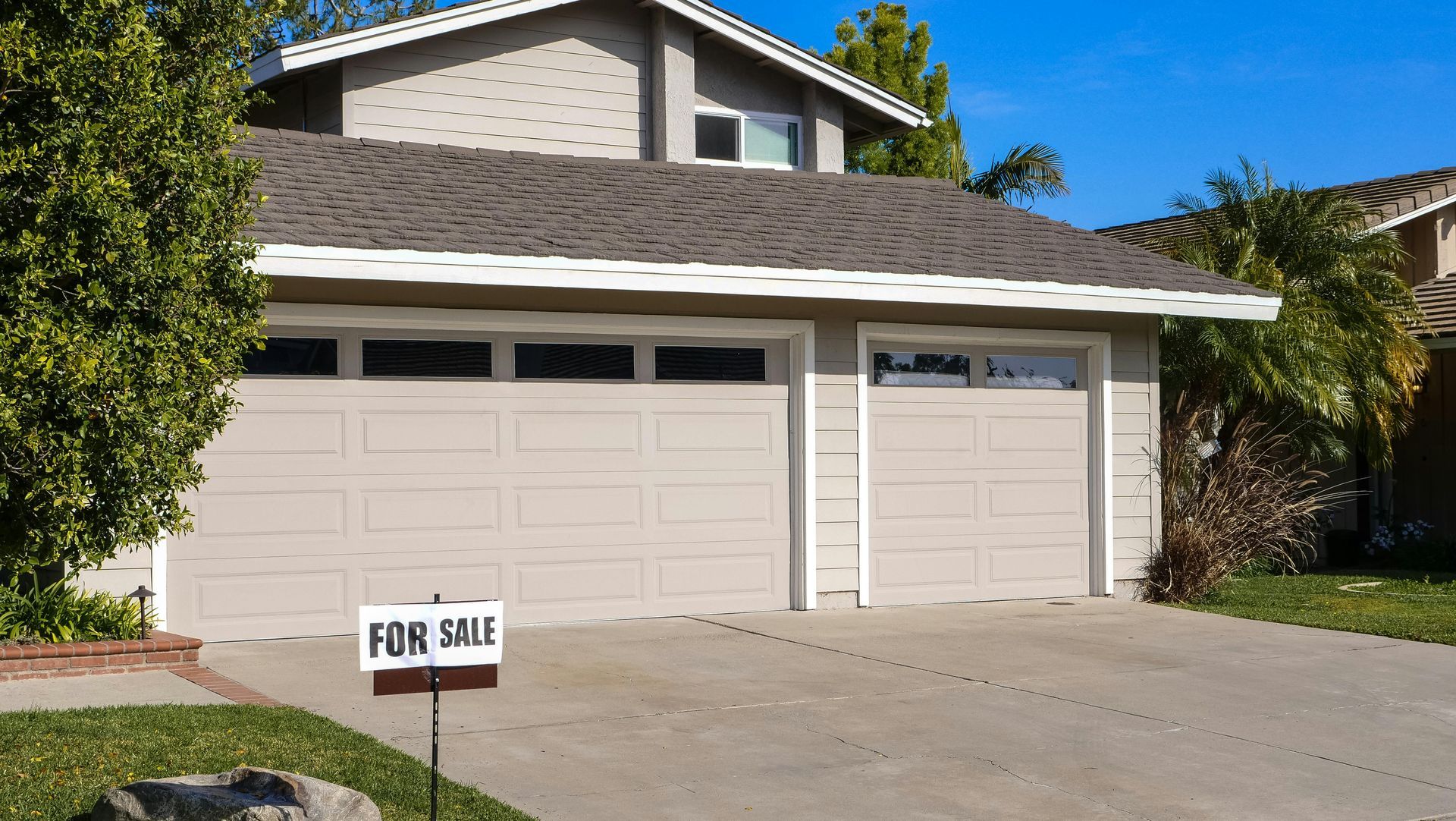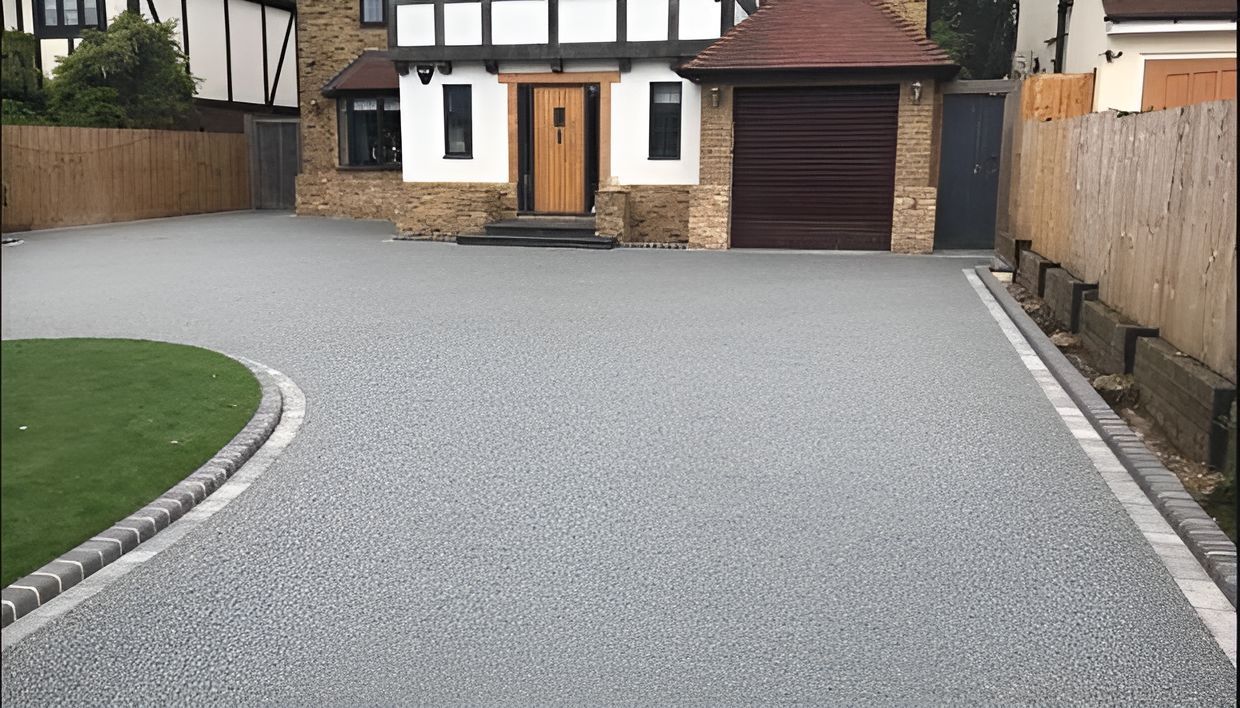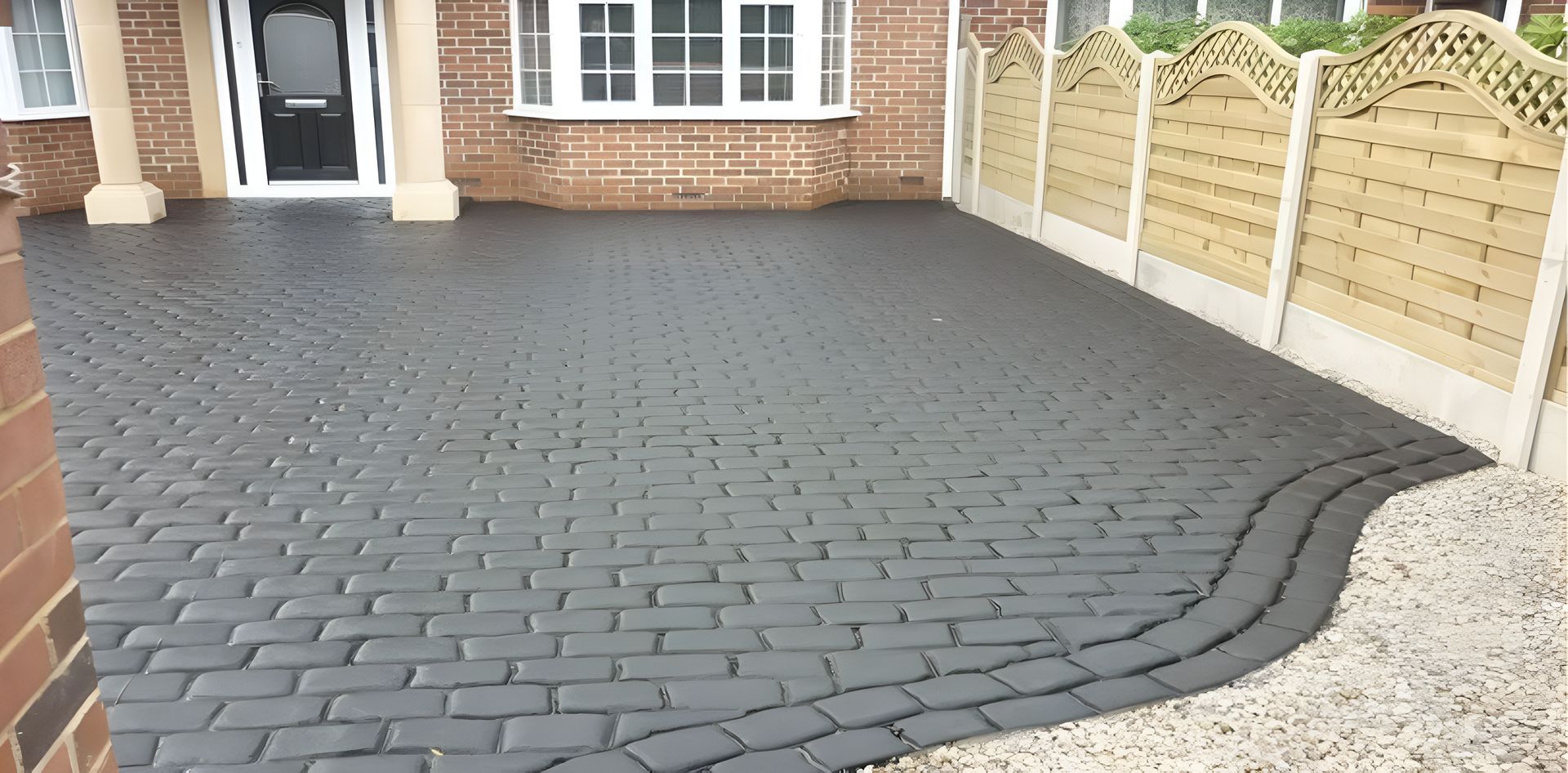The Pros and Cons of Gravel Driveways
Introduction
A well-laid driveway is more than just a space to park your car – it enhances the kerb appeal of your property, adds value, and provides a practical surface for visitors and residents alike. Among the various driveway materials available in the UK, gravel is a popular choice due to its affordability, easy maintenance, and traditional charm. However, before deciding whether a gravel driveway is right for you, it's essential to weigh its benefits and drawbacks.
In this guide, we’ll explore the pros and cons of gravel driveways, helping you make an informed decision for your home or commercial property.
The Advantages of Gravel Driveways
1. Cost-Effective Installation
One of the most significant advantages of gravel driveways is their affordability compared to other driveway materials such as block paving, resin-bound surfaces, or tarmac. The cost of installing a gravel driveway in the UK typically ranges from £40 to £80 per m², depending on the depth of the base and type of gravel used. This makes it a budget-friendly option, particularly for large driveways.
2. Easy and Quick Installation
Unlike block paving or concrete drives, which require extensive groundwork and curing times, gravel driveways can be installed relatively quickly. A well-prepared gravel driveway, complete with a suitable sub-base and weed membrane, can often be laid and ready for use within just a few days.
3. Excellent Drainage and Permeability
Gravel is a permeable material, meaning it allows rainwater to drain through the surface and into the ground. This feature helps reduce surface water runoff and minimises the risk of flooding – an important consideration in areas with strict
Sustainable Drainage Systems (SuDS) regulations. This makes gravel driveways an environmentally friendly alternative to impermeable surfaces such as tarmac.
4. Traditional Aesthetic Appeal
Gravel driveways exude a classic and rustic charm that complements a range of property styles, from country homes to modern builds. Available in various colours and aggregate sizes, gravel can be customised to match the look of your home and enhance overall kerb appeal. Popular gravel types in the UK include Cotswold chippings, golden gravel, and limestone chippings.
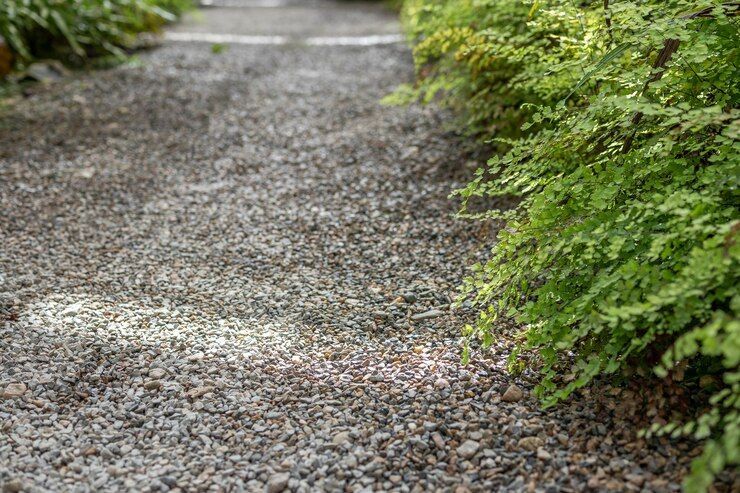
5. Low Maintenance and Easy Repairs
While no driveway is entirely maintenance-free, gravel driveways require significantly less upkeep than block paving or concrete. Common maintenance tasks include:
- Raking and redistributing: Over time, gravel may become uneven, but a simple raking will restore its level surface.
- Topping up with fresh gravel: Every few years, adding a fresh layer of gravel can maintain the driveway’s appearance and functionality.
- Weed prevention: A good quality weed membrane under the gravel reduces weed growth, though occasional weeding may still be necessary.
Unlike tarmac or concrete, which may develop cracks over time and require costly repairs, gravel driveways can be easily topped up without professional assistance.
6. Enhanced Security Feature
Gravel driveways can act as a deterrent to intruders as the loose gravel makes a distinctive crunching noise when walked on or driven on. This added security feature can provide homeowners with peace of mind. For many homeowners, certainly those with a private driveway, the sound of the gravel can alert them to someone approaching the property before the doorbell even rings. At night, it is hard for anyone to approach the property without making a noise, making it a great option for the security-conscious.
"The distinctive crunch of gravel underfoot serves as an audible security alarm, offering an immediate alert to anyone approaching your property – a simple yet effective deterrent."
The Disadvantages of Gravel Driveways
1. Ongoing Maintenance is Required
While gravel driveways are lower in cost, they do require consistent upkeep. Unlike a tarmac or block-paved driveway that remains stable over time, gravel has a tendency to shift and spread with vehicle movement and foot traffic. This means you will need to regularly rake and replenish the gravel.
Additionally, weed growth can become an issue if the proper precautions aren't taken. Even with a high-quality geotextile membrane laid beneath the gravel, some weeds may still find a way through and require occasional treatment.
2. Difficulty in Use for Cycling, Wheelchairs, and Prams
Gravel can be challenging to walk or cycle across, particularly for those using wheelchairs, mobility aids, or pushchairs. Small gravel stones might shift underfoot, making movement difficult. If accessibility is a concern for your household or business, alternative driveway surfaces, such as resin-bound gravel (which is fixed in place) or block paving, may be more suitable. A path through the gravel for access can be a solution here also.
3. Potential for Gravel Displacement
A common problem with
gravel driveways is that the loose stones can migrate onto surrounding paths, lawns, and roads, creating a slightly untidy appearance. If not contained properly with block edging or gravel grids, the gravel may spread beyond the driveway, requiring regular sweeping or raking.
Make sure to install adequate edging to keep the gravel in place and prevent unnecessary scattering.
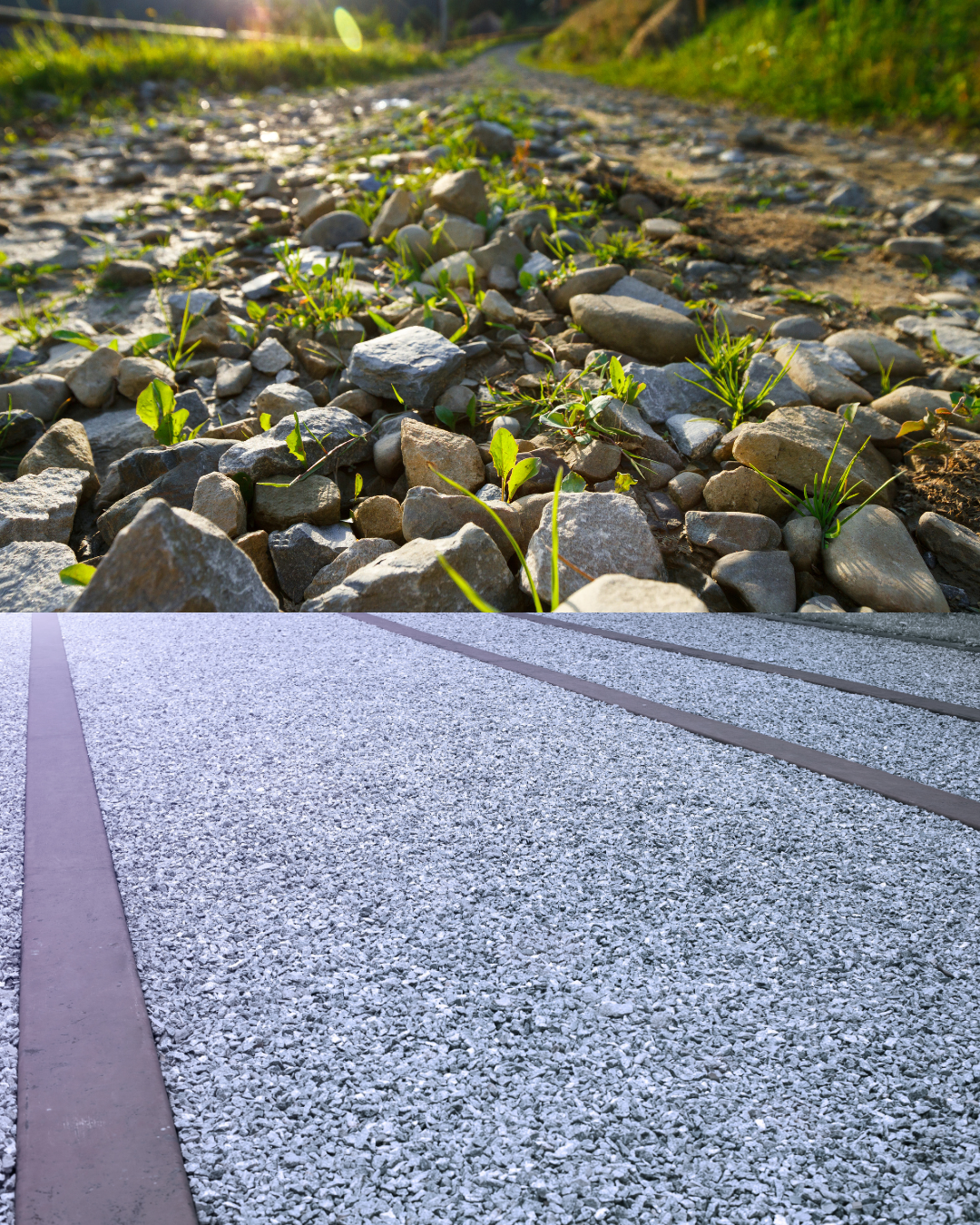
4. Snow and Ice Clearance Challenges
During winter months, maintaining a gravel driveway can be more challenging compared to other solid surfaces. When snow falls, shovelling or gritting can be problematic, as it is difficult to remove ice or compacted snow without also disturbing the gravel.
One way to manage this issue is by using salt sparingly and applying sand or fine gravel over compacted areas for better traction.
5. Mess and Dirt Tracking Indoors
As gravel remains loose on the surface, small stones can occasionally be tracked indoors or into cars via shoes, pets, or tyres. This can result in additional cleaning, particularly in wetter months when mud can cling to stones and be brought into the home.
Strategically placing mats or grates at entrance points can help minimise dirt tracking from a gravel driveway.
Is a Gravel Driveway Right for You?
A gravel driveway is a cost-effective, attractive, and highly permeable option that suits many UK homes. However, it does come with challenges related to maintenance, accessibility, and seasonal weather conditions. If you’re prepared for regular upkeep and appreciate the aesthetic and eco-friendly advantages, a gravel driveway could be the perfect choice.
For those looking for a lower-maintenance alternative, S&T Groundworks provides a range of driveway solutions, including tarmac driveways, resin-bound surfaces, and block paving. We specialise in expertly installed driveways that enhance both functionality and appearance.
Is Gravel Suitable For You?
Gravel driveways remain a popular choice in the Surrey area due to their affordability, ease of installation, and drainage benefits. However, they do require consistent maintenance and are not always the most practical solution for accessibility needs. By understanding the pros and cons, you can make an informed decision about whether a gravel driveway is suitable for your property.
If you're considering a new driveway but aren't sure which material is best for your needs, contact S&T Groundworks today for expert advice and a free consultation. Our experienced team can help you design and install a driveway that meets your budget, style, and functional requirements.


